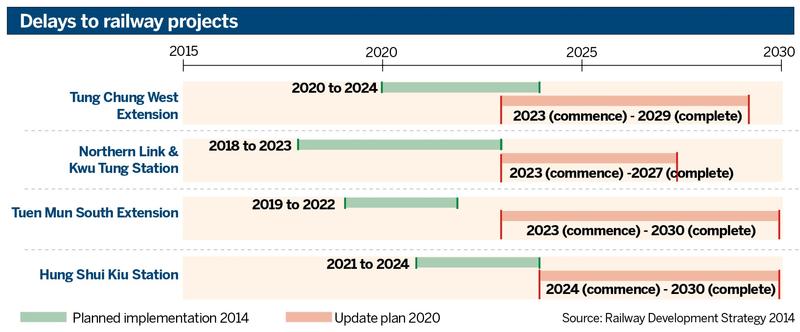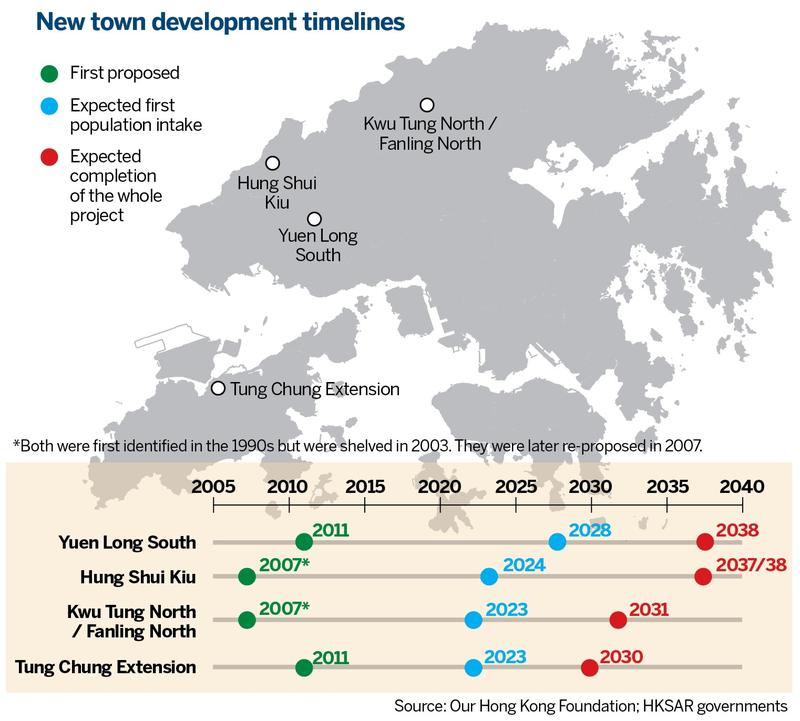Can developer land banks be unlocked?

Ample housing capacity
Qiao suggests local residents be given "land options for housing" (LOHs). LOH holders rather than the government would sell these to developers and indigenous villagers. "Those buyers would compete with each other to purchase to build high-density housing, giving the LOH holders a stake to move land from low-value to high-value uses while providing ample compensation to existing stakeholders.
"The Hong Kong government, developers, and indigenous villagers control most of the developable land in Hong Kong, which includes 391 hectares of unleased residential land, 3,380 hectares of village-type development land, 4,400 hectares of agricultural land, of which only 700 hectares are actively farmed, and 1,600 hectares of brownfields," Qiao said. There is an absence of focused measures to deal with existing land occupiers or users, he added.
That is precisely the point Augustine Ng, a retired 30-year career town planner and former member of the Central Policy Unit, made in his detailed 8,000-word counterproposal of October 2018 to the "Lantau Tomorrow Vision", the government plan to create 1,700 hectares of artificial islands off Lantau Island to hold 400,000 units that would be built over 20 to 30 years for 1.1 million residents, at a cost of HK$642 billion. Critics worry that the project would wipe out half the territory's foreign reserves and take three decades.

Ng proposed a radical reversal of the "hope value", or the expectation developers that their land will appreciate over time. The government could declare that it will not renew the New Territories leases with the developers for the unbuilt land after June 30, 2047, and that the government would retain the land with a minimum buyback offer. Such a move would flush out all the parcels at one go, as all the developers rush to cash in, Ng said. Overnight, the government would get more than the 1,700 hectares it is planning from the Lantau development, and at a far lower cost, he added.
Owning a house in Hong Kong could be an unattainable dream even to a middle-class household, let alone to a household scraping by on minimum wages. In response to the dire need of residents, the government introduced the Home Ownership Scheme and Tenant Purchase Scheme in an effort to allow better-off tenants of public rental flats to buy housing at an affordable price and vacate rental flats for more-needy residents. Despite its ability to boost home affordability, it's still a contentious strategy. A problem with the HOS and TPS is, if the buyer wants to sell the property in the private market after a few years, they have to repay the unpaid land premium, which, instead of being fixed at time of purchase, changes with market prices. Consequently, only a fraction of tenants can afford the formidably high premium, said Hui from Our Hong Kong Foundation.

























